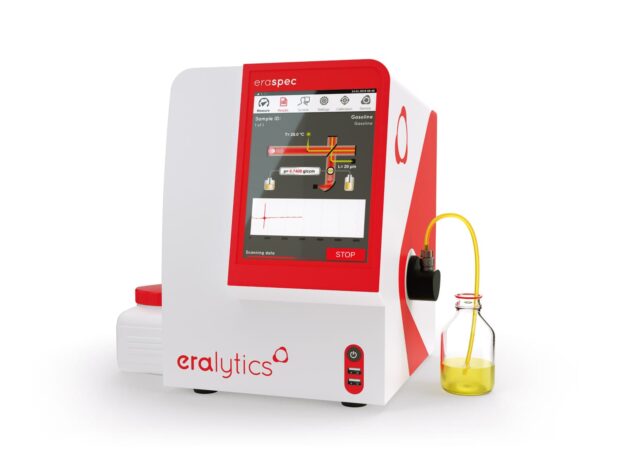Standard Test Method for Determination of Biodiesel (Fatty Acid Methyl Esters) Content in Diesel Fuel Oil Using Mid Infrared Spectroscopy (FTIR-ATR-PLS Method).
Get more information about the standard at ASTM D7371-14(2022).
ASTM D7371 is a standard test method for determining the content of biodiesel, specifically fatty acid methyl esters (FAME), in diesel fuel oils using mid-infrared (mid-IR) spectroscopy with Fourier Transform Infrared (FTIR) and Attenuated Total Reflectance (ATR) techniques combined with Partial Least Squares (PLS) regression analysis. This method is used for quality control in the production and distribution of biodiesel blends, ensuring compliance with specified concentration ranges and maintaining fuel quality.
ASTM D7806 offers a modern and straight forward method for the determination of biodiesel in diesel blends.
Details
The ASTM D7371 test method involves analyzing the diesel-biodiesel blend using mid-IR spectroscopy. The FTIR-ATR setup measures the absorbance of infrared light by the sample, capturing the characteristic spectral features of FAME. PLS regression analysis is then applied to the spectral data to quantify the FAME content. ASTM D7371 Applicable for determining FAME content in diesel fuel oils within the concentration range of 1.00% to 20% by volume.
Industries and Applications
ASTM D7371 is significant in various industries and applications, including:
- Fuel production and distribution: Refineries and fuel distributors employ this method to verify the biodiesel content in diesel blends, ensuring compliance with industry standards and regulatory requirements
- Automotive industry: Engine manufacturers and automotive companies utilize this standard to assess fuel quality, ensuring that biodiesel blends are compatible with engine designs and do not adversely affect performance or emissions
- Environmental agencies: Regulatory bodies and environmental organizations apply this test method to monitor and enforce biodiesel usage mandates, promoting the adoption of renewable energy sources and reducing greenhouse gas emissions
- Quality control laboratories: Independent testing facilities use this standard to provide accurate measurements of FAME content in diesel fuels, supporting producers and consumers in maintaining fuel integrity and performance
